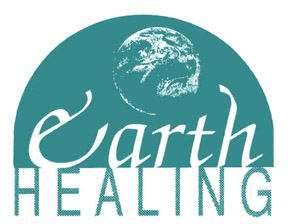
A series of
written
meditations
and reflections
Join
the Earth Healing mailing list
Privacy
statement

By Al Fritsch
I mentioned elsewhere how my great uncle would start his hotbeds on January 2nd. He was an ultra-early gardener. Really I can't let February slip by without again alerting the reader to the need to get going early. Maybe this sounds foreign to those in Wisconsin or New England, but in the broad growing zone in which Kentucky finds itself, we can start quite early. And this and the more southern growing zones encompasses over half the American population. Think about gardening even while it is still winter.
While my mother was still active until her eighties, she would always sow her peas in February; she said that the March cold spells would not harm these hearty plants and it allowed for a bountiful early harvest. She always had a good crop and I never recall a failure. I have tried to follow her example for it has a good gardening principle involved, namely, start gardening as early as possible. Add to this to prepare for March. Think about onion sets and getting the brassicas (cabbage, cauliflower, Brussels sprouts, broccoli, kohlrabi, kale, etc.) into the ground as soon as possible, so they will bear before the late spring worms and heat get to them. Add radishes to that list as well. Late February may not prove the best time to do all these, but it is time to look for the first opportunity in March. The secret is early garden planting even though we must know which crops do best under late winter conditions. While autumns tend to linger, springs move quickly in Kentucky, and many spring crops planted too late turn quickly to seed.
Planting at the first opportunity can carry over into other activities. I have constantly found that the person who waits until the last moment will be hurt in the long run. Under some extraordinary circumstances one may succeed in being late; if it becomes a habit it can be quite harmful -- and that applies to more than gardening. Being time sensitive is of the utmost in anything we do, and gardening helps make us that way.
This attention to the late winter weather allows us to couple early planting with assisting certain crops through the use of temporary cold frames and mulch. These have been described earlier and help crops weather some late winter episodes. The gardener realizes that the protection is often from cold winds as much as from the temperature itself.
If you live in a growing zone that is further north and you never start a garden until say April or May, I will repeat the advice. Some crops can stand the late cold weather quite well. Think of not waiting until the tomatoes can be planted outdoors for doing your spring gardening. Become conscious of doing your gardening early Then you will have a better garden and it will help cultivate a good mental attitude as well. Replace "better late than never" with better early than late.